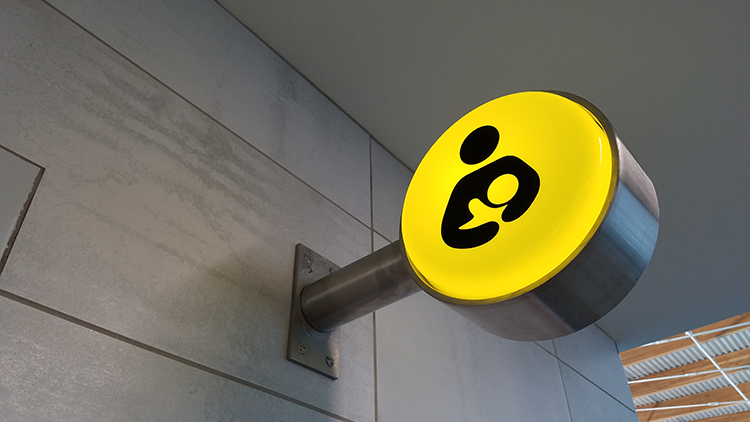Lactation stations and breastfeeding accommodations are needed for bar exam attendees

Image from Shutterstock.
Bar admissions authorities, bar associations, law schools and legal employers need to establish clear and consistent policies that provide accommodations to individuals who are lactating, the ABA House of Delegates resolved Monday.
According to the Young Lawyers Division, which submitted Resolution 501, these written policies should be available to the public online and ensure “reasonable and supportive accommodations to express milk.” This includes 30-minute “off-the-clock” breaks for every three-hour exam session; a private or semiprivate space with a chair, table, electrical outlet, sink and refrigerator or area to store a cooler; and clear instructions on how to access the space.
It additionally asks that policies permit law students and bar examinees to bring their breast pumps and expressed milk into the examination room.
“Quite simply, the lack of accommodations for nursing individuals creates a barrier to the practice of law,” said Daiquiri Steele, a Young Lawyers Division representative to the House of Delegates, who introduced the resolution.
“Even in instances where space is offered to lactating individuals, it is often inadequate, requiring milk to be expressed in environments that are inherently unsanitary, like bathroom stalls, or environments with insufficient seating that lack privacy or have no electrical outlet for lactation equipment and supplies,” she added. “This structural inequity interferes with the delivery of justice by not only presenting a barrier to those lactating individuals who seek to enter the profession but also by interfering with the ability of current lawyers to equally participate in the profession.”
Follow along with the ABA Journal’s coverage of the 2022 ABA Midyear Meeting here.
The American Civil Liberties Union and Law Students for Reproductive Justice conducted a survey in 2015 to determine which states provided accommodations to individuals who were lactating during their bar exams.
According to the report accompanying the resolution, their results show that 45 states only published accommodation information for individuals with disabilities covered under the Americans with Disabilities Act on their bar examiner websites. Lactation and breastfeeding do not qualify as disabilities under the ADA.
The ACLU and LSRJ say 10 states have since revised their policies for lactation accommodations. These states are Colorado, Delaware, Iowa, Idaho, Massachusetts, Michigan, Minnesota, New Mexico, Texas and West Virginia.
Michelle Browning Coughlin, founder and president of MothersEsquire, a national nonprofit organization that advocates for gender equity in the legal profession, also spoke in favor of the resolution. She shared her own personal story of pumping on an old couch in a basement bathroom in her law school’s library.
“A full 60% of mothers do not breastfeed for as long as they intend to because of unsupportive work policies and lack of parental leave, among other similar factors,” said Coughlin, who is also a member of the Commission on Women in the Profession. “Law students and lawyers who are mothers report frequently about needing accommodations to breastfeed that are simply not provided.”
The Commission on Women in the Profession co-sponsored the resolution.
The House of Delegates addressed a similar issue in 2019, adopting a policy encouraging legislatures, court systems and bar associations to establish and maintain lactation areas in courthouses.
See also:
ABAJournal.com: “Proposed lactation-room legislation should cover all courthouses, ABA president urges”



